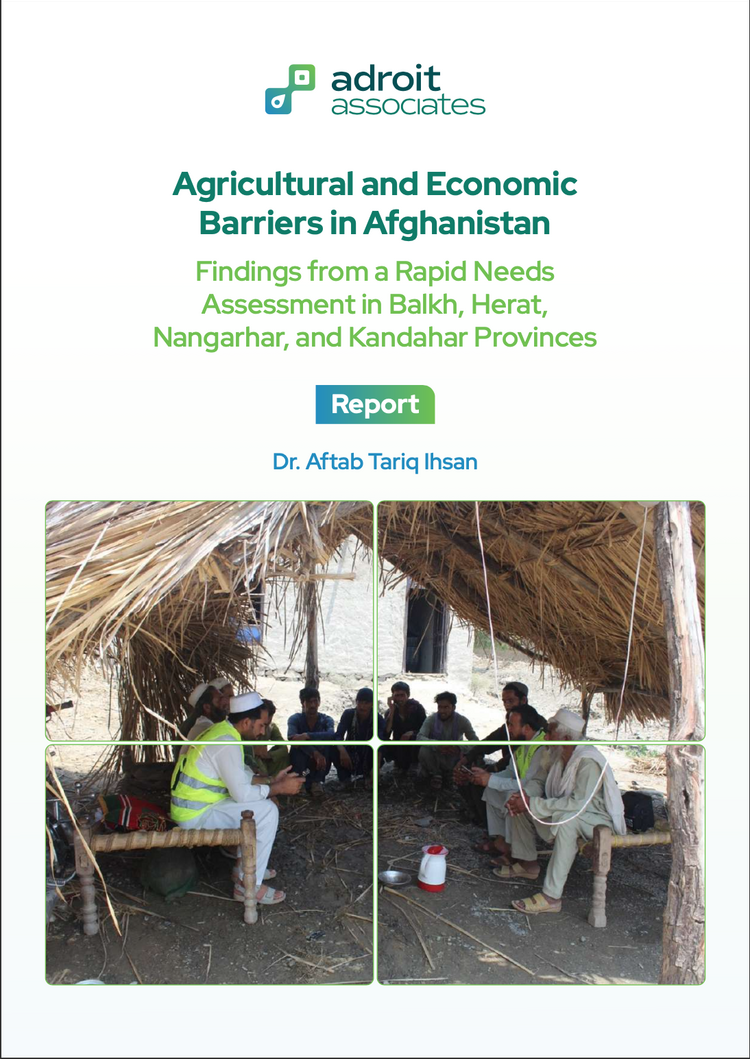
The Rapid Needs Assessment (RNA) conducted across Herat, Nangarhar, Kandahar, and Balkh provinces highlights severe challenges in food access. Respondents from these regions reported multifaceted issues impacting food security, including insufficient food availability in markets, poor food quality, lack of cooking facilities, loss of agricultural assets, and limited physical access to markets. Notably, the high percentages of these issues in Nangarhar and Kandahar indicate acute food insecurity among vulnerable populations, especially women. These findings underscore the urgent need for comprehensive targeted interventions to address these challenges.
The RNA reveals significant changes in food consumption patterns across the surveyed provinces. While a small percentage of respondents reported increased food consumption, a considerable portion noted a decrease, particularly among women, suggesting worsening food security and economic constraints. These findings highlight the dynamic nature of food access and the varying impacts of economic and environmental factors on household food consumption. Adaptive strategies that consider local contexts and vulnerabilities are essential to effectively address these shifts.
Primary food sources across the surveyed provinces include subsistence production, local markets, and humanitarian assistance. Subsistence farming is crucial in ensuring food security, especially in Kandahar and Nangarhar, where many respondents rely on their agricultural efforts. Local markets are another essential source, with many households purchasing food to complement their subsistence production. Humanitarian aid is a crucial lifeline, where a substantial portion of the population depends on external support during periods of heightened food insecurity. These findings underscore the importance of diverse food access strategies, integrating local agricultural production with market opportunities and external assistance to bolster resilience.
Livelihoods in the surveyed regions are predominantly supported through daily labor, children's self- employment, and subsistence farming. Daily labor is widespread, supporting many households across all provinces, with higher prevalence in Kandahar and Balkh. Children's contribution to household income through various forms of labor highlights their economic role despite concerns over child labor and its impact on education and well-being. Women's involvement in small-scale economic activities, such as handicrafts and poultry farming, is notable in Kandahar and Nangarhar, underscoring their resilience and economic contributions amidst challenging circumstances. These findings emphasize the importance of supporting sustainable livelihoods that enhance economic opportunities while safeguarding vulnerable groups, including children and women.
Access to clean water remains a critical challenge across the surveyed provinces, with varying reliance on different water sources. Boreholes with motor pumps are widely used and provide reliable access to water. However, concerns persist over the quality and safety of water from unprotected sources like springs and open wells. Humanitarian assistance is pivotal in ensuring water access, particularly in areas lacking adequate infrastructure or facing water contamination. These findings underscore the need for improved water management strategies that enhance access to safe drinking water and promote sustainable water use practices, addressing both immediate needs and long-term resilience against water-related challenges.
The assessment reveals diverse agricultural practices and challenges farmers face across the surveyed provinces. Staple crops such as wheat and rice are prominently grown. Traditional plowing with oxen or donkeys remains prevalent, especially in Herat and Nangarhar, though the gradual adoption of mechanized farming practices is noted. Conventional irrigation methods like Karez and reliance on seasonal rainfall highlight adaptive water management practices. However, modern irrigation technologies are notably absent, indicating potential areas for future technological interventions. Farmers face multifaceted challenges, including limited access to modern technology, water scarcity, soil degradation, and financial constraints, which hinder agricultural activities and market access. Cultural restrictions further impede women's participation in farming, while the absence of training programs limits skill development essential for sustainable agriculture practices. Addressing these challenges is crucial for improving agricultural productivity and sustainability across the surveyed provinces.

